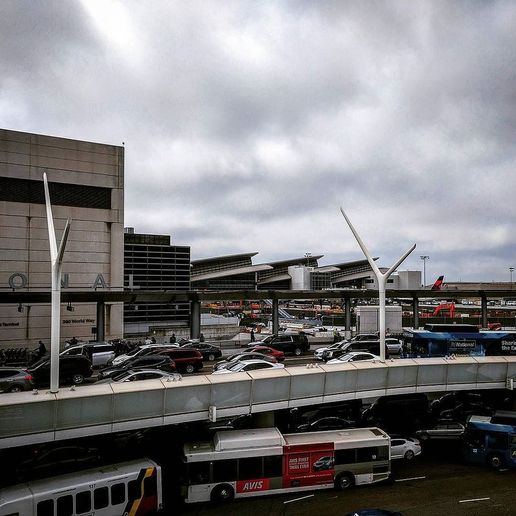WASHINGTON (Reuters) – Uber Technologies Inc’s autonomous test vehicles were involved in 37 crashes in the 18 months before a fatal March 2018 self-driving car accident, the National Transportation Safety Board (NTSB) said on Tuesday. FILE PHOTO: An Uber pick-up location is pictured in San Diego, California, September 30. 2019. REUTERS/Mike Blake The board said… Continue reading UPDATE 1-Uber test vehicles involved in 37 crashes before fatal self-driving incident
Tag: Uber
Alexander, Konstantin Sixt Receive Digital Awards
At this year’s Digital Champions Awards in Cologne, an initiative of WirtschaftsWoche and Deutsche Telekom, Alexander and Konstantin Sixt were awarded the special prize “Digitisers.” The top-class jury honored the two brothers for the most outstanding digitalisation story in 2019. Nico Gabriel, Sixt’s divisional director of digital X, accepted the award from former boxing world champion… Continue reading Alexander, Konstantin Sixt Receive Digital Awards
WeWork-owned Meetup confirms restructuring, layoffs
WeWork’s efforts to cut costs following the ouster of its chief executive officer and a delayed initial public offering looks to be impacting its subsidiaries. Meetup, which WeWork acquired for a reported $200 million in 2017, announced a round of layoffs this morning, TechCrunch has learned. The company, which helps people foster in-person connections by… Continue reading WeWork-owned Meetup confirms restructuring, layoffs
Ben Horowitz on shocking rules and dramatic object lessons
Ben Horowitz, co-founder of venture firm Andreessen Horowitz, has a new book out titled “What You Do Is Who You Are,” which takes a look at how to create culture at a company. We sat down with Horowitz last month to discuss some of the lessons he aims to impart and why he felt compelled… Continue reading Ben Horowitz on shocking rules and dramatic object lessons
Uber Announces Results for Third Quarter 2019
SAN FRANCISCO–(BUSINESS WIRE)–Uber Technologies, Inc. (NYSE: UBER) today announced financial results for the quarter ended September 30, 2019. “Our results this quarter decisively demonstrate the growing profitability of our Rides segment,” said Dara Khosrowshahi, CEO. “Rides Adjusted EBITDA is up 52% year-over-year and now more than covers our corporate overhead. Revenue growth and take rates… Continue reading Uber Announces Results for Third Quarter 2019
Uber beats third-quarter revenue estimates
Nov 4 (Reuters) – Uber Technologies Inc on Monday beat Wall Street estimates for third-quarter revenue, as more people used its ride-hailing and Uber Eats restaurant delivery service. Total revenue rose nearly 30% to $3.81 billion, beating analysts’ average estimate of $3.69 billion, according to IBES data from Refinitiv. Uber’s costs jumped about 33% to… Continue reading Uber beats third-quarter revenue estimates
Angry Travelers Face Long Lines at LAX’s New Rideshare Pickup
For most travelers, wait times for Uber and Lyft rides exceeded an hour. Photo via Brendan C/Flickr. Travelers at Los Angeles International Airport (LAX) faced packed shuttle buses and long wait times using the new Uber, Lyft, and taxi pickup system, according to a report by the Los Angeles Times. For most travelers, wait times… Continue reading Angry Travelers Face Long Lines at LAX’s New Rideshare Pickup
DENSO Reinforces Commitment to Sustainable Mobility in Company Direction Update
KARIYA, Japan, Nov. 1, 2019 /PRNewswire/ — DENSO, the world’s second largest mobility supplier, today announced its second quarter (July-September) financial results for its fiscal year 2019, as well as updates in its business strategy to create and inspire new value for the future of mobility. As part of this strategy, or its ‘Second Founding,’ DENSO continues… Continue reading DENSO Reinforces Commitment to Sustainable Mobility in Company Direction Update
Lyft replaces pricey All-Access monthly plan with Lyft Pink – TechCrunch
When Lyft unveiled its All-Access plan last year, many were taken aback by the hefty price of $299 per month. Now, Lyft is ditching that plan and replacing it with Lyft Pink, which costs just $19.99. The perks of the membership differ, but this lower price point will likely prove to be much more of a… Continue reading Lyft replaces pricey All-Access monthly plan with Lyft Pink – TechCrunch
Introducing Uber ATG’s Self-Driving Safety & Responsibility Board
By: Chan Lieu, Sr. Safety Program Analyst Uber ATG is pleased to announce the creation of our Self-Driving Safety and Responsibility Advisory (SARA) Board. The SARA Board is an independent panel of safety experts charged with reviewing, advising, and suggesting changes to Uber ATG’s self-driving enterprise, including inputs on organizational goals and priorities. We believe… Continue reading Introducing Uber ATG’s Self-Driving Safety & Responsibility Board

